Course Information

RESOURCES
> ACCESS, BELONGING, COMMUNITY
> WILDERNESS COURSE ELIGIBILITY
Contact Us
Student Services Department - [email protected] or 800-878-5758
WELCOME TO YOUR JOURNEY
This is your Course Page.
Outward Bound offers an exciting opportunity for you to learn new skills, make friends and create memories that will last a lifetime. Our mission? To change lives through challenge and discovery!
Now that you have enrolled, this Course Page is your “go to” location for all forms, gear lists and information specific to your course. Bookmark it for future reference! Below you will find the page divided into 5 blue tabs. Each tab has multiple expandable sections. Familiarizing yourself with the information on this Course Page is an essential part of preparing for course.
It is natural to have questions when preparing for the adventure ahead. Many answers to your questions can be found on this Course Page or within our Frequently Asked Questions. Additionally, you can always contact the Student Services Department.
We look forward to seeing you Outward Bound!
Course Number
NTVE-921 North Carolina State University Veterans Backpacking and Rock Climbing
Date
October 10, 2019 - October 14, 2019
BACKPACKING
Specifics: During your course, you will be backpacking up to three days.
During your course, you will be spending the majority of your time backpacking. During this component, you learn safety precautions for backcountry foot travel, how to find campsites, how to navigate terrain as well as how to use a map and compass. Equally important will be time spent learning conflict resolution, communication styles, leadership and team building. After practicing these skills, your instructors will step back and let you and your crew work together to collectively navigate through the wilderness.
Since your crew’s navigation depends on individual and group decision making, your crew could make some navigational errors along the way. You will be carrying a backpack that may weigh 50+ pounds. The weight is manageable, as the packs (when fitted correctly) will rest on your hips not on your back or shoulders. You may end up hiking long hours to reach your destination. You may expedition three miles uphill one day and eight miles over varied terrain the next day. Therefore, we want to remind you that physical preparation is very important!
ROCK CLIMBING
Specifics: Weather permitting, and due to the course length, you may spend a day either rock climbing, rappelling or on our high ropes course.
With a focus on the practice of safety, your lessons will start with the basics, such as working with ropes and learning to tie knots used for climbing and rappelling.
- Top-Rope climbing or “top-roping”: A style of rock climbing in which a rope runs from a belayer at the foot of a route through one or more carabineers connected to an anchor system at the top of the route and back down to the climber. The rope is attached to the climber by means of a harness.
- Rappelling: A means of controlled descent to lower yourself down a cliff, rock face or some other high location.
SOLO - SELF REFLECTION
Solo typically occurs more than halfway through your course and may last up to 24 hours. Your instructors will assign each participant an individual campsite within a designated area. Your instructors will teach you procedures to follow during solo and monitor you during this experience. You will know the location of your instructors’ campsite should you need to contact them; otherwise it is essential that you remain in your designated area. If your course has an overnight solo you will have your clothing, food and water. In addition, you will have Outward Bound issued gear: including rain gear, shelter, sleeping bag, compass and whistle. You will not be physically active during solo, as solo is a time for rest, recharge and reflection. Solo is also a good time to write in the journals we provide. If you have questions or concerns, please discuss with your Student Services Representative or your instructors.
BLUE RIDGE MOUNTAINS, NC
Because the Appalachians were once one of the largest mountain ranges in the world they have many different geologic landforms, climates and soils. This long evolutionary history and temperate climate create an area which is teeming with life. Participants can expect to share the wilderness with over 700 different kinds of trees, more than 50 types of mammals, 150 different types of birds and about 40 species of amphibians.
This course area is situated within a million acres of national forests, federally-protected wilderness areas, and other public lands. Its diverse landscapes have been featured in many motion pictures, including The Hunger Games and The Last of the Mohicans. <Click to learn more about this course area.>
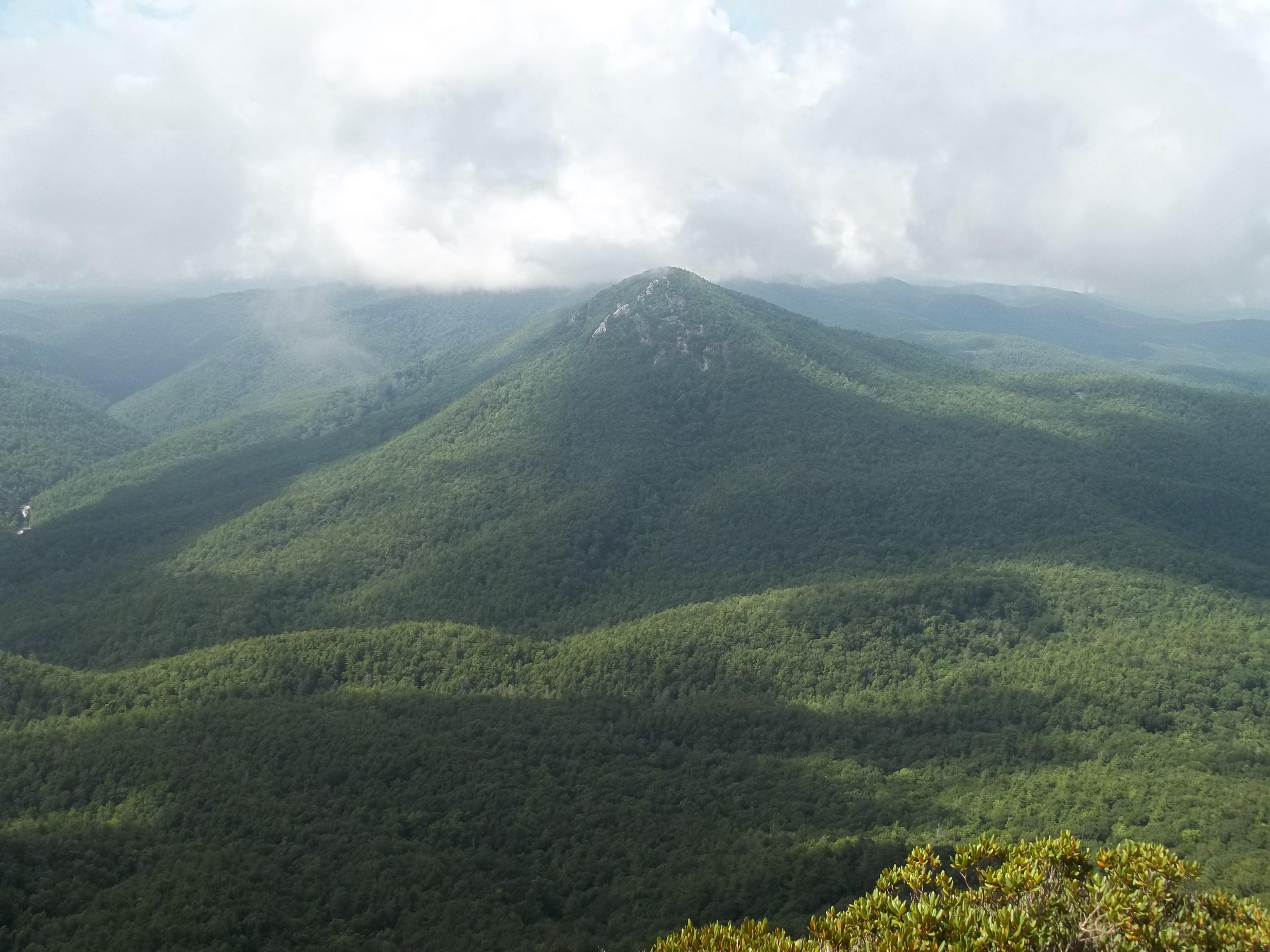
Each crew will be given large tarps to set up as shelters. You will also be given a ground sheet and a foam sleeping pad to place under your sleeping bag.
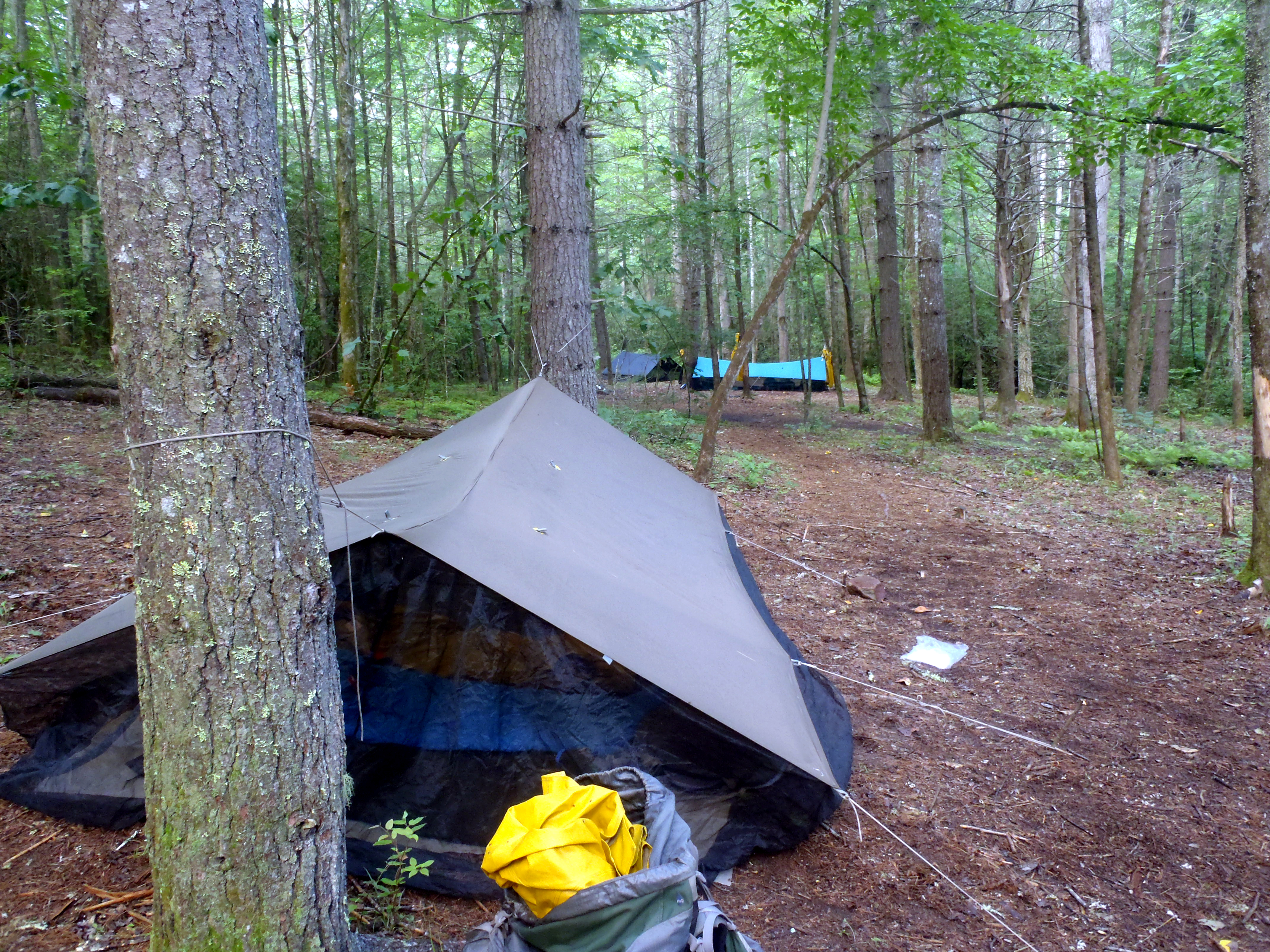
Here are some books that we encourage you to read as you plan for your course:
- The Outward Bound Wilderness First-Aid Handbook by Jeff Isaac
- Leave No Trace: A Practical Guide to the New Wilderness Ethic by Annette McGivney
- Knots & Ropes for Climbers by Duane Raleigh and Mike Clelland
- The Outward Bound Backpacker's Handbook by Glenn Randall
- The Outward Bound Map & Compass Handbook by Glenn Randall
Preparing and eating tasty meals in the backcountry is part of the Outward Bound experience.
Under your instructors' supervision, you and your crew will prepare group meals in a camp setting using gas camp stoves. Meals are eaten as a group and may start off with group announcements, appreciations, or an inspirational quote. We use this time together to reflect on the successes and challenges of the day and to plan what is to come for the following day.
Your group will travel with approximately a week’s worth of food at a time. For courses 14-days and longer, our support staff meet up with your group in the wilderness periodically to restock your food. This meet up is called a “re-supply.”
Our courses are physically rigorous, and our meals emphasize protein and carbohydrates to re-fuel your body. All course food is packable and non-perishable. We use a mix of dehydrated foods, fresh fruits, and vegetables. Our goal is to provide meals that are familiar. However, we ask that you be open to trying foods that may be new to you.
Participants should not bring their own food or snacks unless authorized to do so by NCOBS.
Our Food Pack Out Process
All meals at Outward Bound are cooked outdoors in remote camp settings. We work diligently to provide familiar and tasty foods, and we acknowledge that our food options are limited while we are on expedition, away from our supply facilities.
We depend on clear and accurate food allergy and dietary restrictions disclosed during the admission process to adequately plan and pack your group’s meals and snacks prior to course start. Our processes are not designed to accommodate last minute dietary requests or to loosen dietary restrictions originally disclosed.
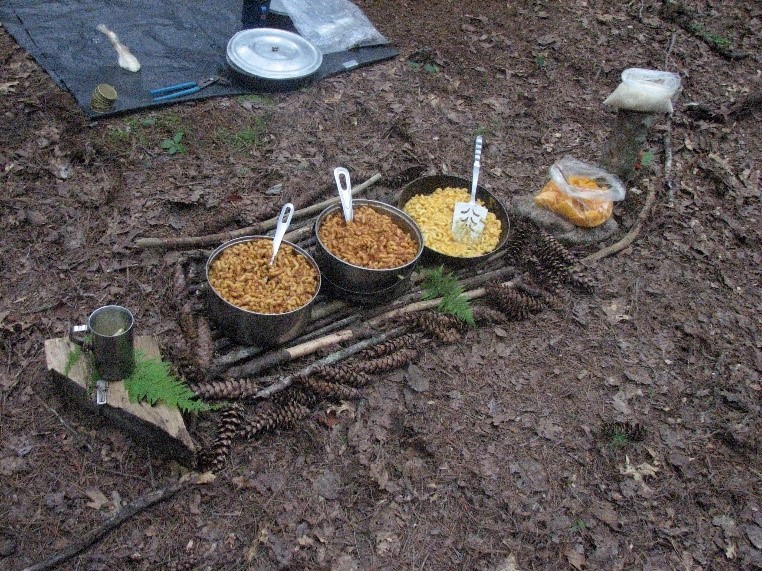
MEALS AT OUTWARD BOUND
The following list represents common meals at Outward Bound (this is not a menu)
Breakfast
- Bagels and cream cheese
- Pancakes with butter and syrup
- Cream of wheat
- Grits with cheese and dried fruit
- Grapenuts or Granola and soy milk or cow’s milk
- Oatmeal with raisins and brown sugar
- Huevos Rancheros: eggs, salsa, cheese and black beans on tortillas
Lunch
- Peanut butter and Jelly on tortillas
- Pizza: pepperoni, mozzarella, tomato paste, pita bread
- Hummus with carrots, cheese and crackers
- Salami with cheese and crackers
- Beans Galore: black beans, red beans, white beans, corn, onion, Italian dressing on tortillas
- Tuna and cheese on pita bread
Dinner
- Pasta Alfredo: Rotini with alfredo sauce and mushrooms
- Burritos: refried beans and rice with salsa and cheese
- Tuna Mac: Macaroni with cheese, parmesan cheese, tuna and milk
- Stir Fry: Rice and chicken with vegetables, coconut milk and curry powder
- Veggie Chili with rice, cheese, onion and cornbread
- Tacos: Natures Burger with tomato paste, cheese, onion and Tortilla
Drinks (other than water)
- Cocoa
- Tea/Coffee (in moderation)
- Drink mix
Snacks
- Fruit (oranges, apples)
- Trail mixes (many varieties)
- Goldfish crackers
- Pretzels
North Carolina Outward Bound strives to accommodate many dietary restrictions.
We encourage applicants to share with us their dietary needs during the admissions process. We regularly accommodate vegetarian, pescatarian, dairy free, gluten free and more. We dedicate considerable resources to meeting dietary needs by substituting or omitting food items for an individual or for the whole group.
If you disclose a dietary restriction like lactose free, dairy free, gluten free, etc., we will plan for you to maintain that diet restriction during course unless you specify otherwise. Therefore, please only include dietary restrictions you are committed to maintaining during course to minimize potential food waste.
We urge caregivers of youth applicants to discuss dietary restrictions prior to completing the application materials, to confirm alignment on the information provided to us.
Preferences
Our primary goal is to meet students’ dietary allergies or intolerance/ sensitivities. The addition of food preferences could further influence the menu items we can provide.
Our staff members, who have had years of experience in the field, find that once students with food preferences engage in our rigorous backcountry, wilderness-based activities, those same students tend to (at least temporarily) broaden their food choices. We believe students may find these foods surprisingly appealing during their course due to their bodies’ increased need for calories.
Dietary Allergies, Intolerances and Sensitivities
NCOBS cannot guarantee there will be no exposure to known allergens. If the applicant has had an anaphylactic response related to a dietary allergen, we must consider our remote wilderness area as we determine the appropriateness of our programs for the applicant.
Depending on the severity of the allergy, NCOBS can accommodate by:
- Purchasing foods labeled as being free of the known allergen
- Packing out allergen free foods separately to reduce the potential for cross contamination
A dietary intolerance or sensitivity can also typically be accommodated on course. If you can tolerate the food item in limited amounts, please disclose these details in your application materials so that we may strive to broaden the range of foods we provide.
Religious Requirements
North Carolina Outward Bound strives to accommodate religious dietary requirements. Please disclose your requirements in your application materials and call your Student Services Representative if you have questions.
We urge caregivers of youth applicants to discuss dietary restrictions prior to completing the application materials, to confirm alignment on the information provided to us.
Food Aversions
Depending on the food aversions, NCOBS can accommodate by:
- Allowing applicants the choice not to eat certain foods/ingredients we provide.
- Allowing applicants the choice to bring alternative foods to what we provide.
We encourage applicants who indicate highly restricted diets to review our Essential Eligibility Criteria and note this requirement specific to nutrition and hydration:
Learn and perform essential self-care....maintaining adequate hydration, nutrition... and managing any known medical conditions for the duration of course, often more than a day from advanced medical care.
Please call your Student Services Representative if you have concerns about the applicant’s ability to meet our Essential Eligibility Criteria.
Picky Eaters
Outward Bound requires daily physical activity that often exceeds an applicant’s level of physical activity in everyday life.
We urge caregivers of youth applicants to discuss eating habits prior to completing the application materials, to confirm alignment on the information provided to us.
Over the years, we have observed students with picky eating habits are most successful on course when they are willing and able to broaden (at least temporarily) their food choices due to their bodies’ increased need for calories. Please review our Essential Eligibility Criteria and note this requirement specific to nutrition and hydration:
Learn and perform essential self-care, including dressing appropriately for protection from environmental conditions (such as sun, rain, cold, etc.), maintaining adequate hydration, nutrition, and personal hygiene, and managing any known medical conditions for the duration of course, often more than a day from advanced medical care.
Please call your Student Services Representative if you have concerns about the applicant’s ability to meet our Essential Eligibility Criteria.
Maintaining personal hygiene in the wilderness is important and is taught on every course. You will be outside while on course and won't have access to a shower or bath. You will be able to do basic cleanup every day: brush your teeth, wash your face and comb your hair. At the end of your course, you will be able to do a more thorough cleanup.
Since North Carolina Outward Bound is an outdoor program, you can expect to learn and use Leave No Trace camping techniques. Know that it is natural to have questions regarding sanitation in an outdoor setting. Your instructors will answer your questions and will teach you the hygienic and environmentally safe way to dispose of waste as well as techniques for basic cleanliness - don't hesitate to approach them with any questions or concerns
In our everyday lives, technology is always at our fingertips. By contrast, in the life of an Outward Bound participant, you have the unique opportunity to unplug and fully immerse yourself in the wilderness to connect with your crewmates and instructors.
Guidelines
NO:
- Electronic devices such as cell phones, GPS devices, asset tracking devices (such as Airtags), and/or any other wi-fi enabled electronic devices are not permitted while on course.
- No cell phone cameras allowed.
YES:
- Carry your cell phone with you to course start. Your cell will be locked in a group storage bin with your luggage at our facility while you are on course. You’ll be reunited with your cell phone at course end.
- Bring a camera to record the events of course – either a waterproof disposable camera or a digital camera with a small “dry bag” or Ziplock bag for storage. Our courses are rigorous and there is a risk of losing or damaging your camera.
Safety and Risk Management
Please review our Safety and Risk Management page.
SPECIFICS
Mail delivery is not available on 4-9 day courses.
At all levels of our school, we demonstrate our dedication to participant safety by our words, actions and values. Outward Bound has been a national leader in wilderness safety for over 50 years and frequently advises and assists other organizations in outdoor adventure risk management. Living and traveling in a remote wilderness setting exposes you to risks different than those you may encounter in your daily life. We believe that accepting appropriate risks and training and preparing participants to manage those risks, provides invaluable life experience. Regardless of precautionary measures, risk and uncertainty are central to the concept of challenge and adventure. The intent is not to avoid activities involving risk but to recognize, prepare for and successfully manage risk. In order to identify any potential hazards and update best practices, our programs are regularly reviewed by outdoor professionals from inside and outside the Outward Bound system.
Outward Bound instructors receive regular training in the activities and environments in which we deliver our courses. They are trained to anticipate and manage risks inherent in remote areas. They are also trained in first aid, search and rescue and emergency management. Our instructors are certified Wilderness First Responders; some are Wilderness Emergency Medical Technicians or equivalent. Outward Bound maintains a minimum staff-to-student ratio of approximately 1:6. Instructors work in teams of two or three with six to 12 students. Instructor teams are usually co-ed but balancing skills and teaching styles is our primary staffing focus. One instructor in every team is a lead instructor with multiple seasons of training and experience. The lead instructor has single point accountability for the safety and effectiveness of the course in the field as well as mentoring their staffing team. For more information on our instructors, please check out our staff profiles page or our careers page for instructor requirements.
As a participant, you must take responsibility for yourself by following instructions and practicing the skills taught by your instructors.
Please also review our Safety and Risk Management page.
If a family emergency occurs while the course is in progress, emergency messages can be relayed by calling our toll-free number (800-878-5258) on weekdays 8:30 AM – 5:00 PM eastern time. Prior to course start, you will receive an email that provides an after-hours and weekend emergency phone number.
The history of Outward Bound serving veterans dates to 1971 and the “Spartan Pathfinder” program run by the John F. Kennedy Center for Military Assistance. The purpose of the program was to use Outward Bound techniques to reorient soldiers with drug and disciplinary problems and “promote self-confidence and self-awareness through controlled stress in a wilderness environment.” From 1975 - 1981, the Dart-mouth Outward Bound Center and the Department of Psychiatry at Dartmouth Medical School began serving veterans working through Post Traumatic Stress and other mental health diagnoses.
In 1981 Dartmouth Outward Bound Center merged with Hurricane Island Outward Bound School and by 1983 Outward Bound for Veterans was born.
Since 2006 Outward Bound has served close to 10,000 Veterans and Active Duty service members. While the majority of the participants are veterans of Afghanistan and Iraq, we welcome veterans from any era to attend one of our courses.
The founder of the Vietnam veterans program and a guiding hand through many iterations of Outward Bound for Veterans was Army Colonel Bob Rheault. Colonel Rheault commanded both the 1st and 5th Special Forces Groups. He became an Outward Bound instructor after he left the Army, “because it was the closest thing to Special Forces that he could find.” For 32 years Colonel Rheault served as an Instructor, Program Director and President of the Hurricane Island Outward Bound School, retiring in 2001. Colonel Rheault passed away in 2013.

The Student Services Department of the North Carolina Outward Bound School is committed to supporting you through the enrollment process. If you have comments or feedback to share regarding your experience with us, please contact our Director of Student Services Erin Broome, [email protected].
WHAT WE SUPPLY
North Carolina Outward Bound School provides:
- sleeping bags
- sleeping pads
- shelter
- compass
- food
- water bottles
- cooking equipment
- eating utensils
- rain gear - unless otherwise notes on your packing list
We also provide activity-specific items based on your course type:
- backpacks
- rock climbing gear
- canoes, and/or
- sea kayaks
Please refer to the Packing List below for the items to bring to course.
WHERE TO SHOP
First, shop your closet or those of your family or friends - you might have many of these items already. Then start planning what you may need to buy, leaving yourself time to find sales or free shipping.
Many students shop for clothing and gear from the following retailers:
- Goodwill, other thrift stores, consignment stores
- Walmart, Target, Amazon, Old Navy, other large chain stores
- REI Co-Op
- Eastern Mountain Sports
- Sierra Trading Post
Plan ahead! When you arrive for course start, you will not have an opportunity to purchase forgotten items!
Please review the video How to Pack for Course Without Breaking the Bank below.
PACKING AND STORAGE
When packing, use a duffel bag or soft-sided luggage (if available) due to limited storage space at our facility.
When you arrive, your instructors will facilitate a process we call “duffel shuffle” that includes:
- Assessment of your clothing and gear with the route and the anticipated weather in mind. (Tip: save the tags from new purchases so you can return any unused items after course end.)
- Issue Outward Bound items you will use during course
- Stowing personal items not needed while on expedition such as travel clothes, cell phones, electronic devices, and wallets back into your travel luggage.
- Luggage will be transported to our facility and placed in locked storage until course end. Please leave any expensive or valuable items at home.
Our Clothing and Gear list reflects the layering principle. It is vital that all your clothing be comfortable, quick-drying, and warm. Several layers of light clothing keep you warm and can be adjusted to changes in both weather and activity. For example, wearing a long sleeve shirt, a fleece layer and a jacket allows you to adapt to changing conditions.
Points to keep in mind while planning and shopping:
- Changing weather conditions may require the use of all of the items on the list. However, keep receipts and tags from new purchases so unused items can be returned after course.
- Most athletic/fitness clothing will be appropriate for course.
- Check clothing tags to confirm fabrics details.
- Fabrics such as polyester, nylon, fleece, acrylic, rayon, wool, or name brands like Polartec™, Thinsulate™, COOLMAX®, Smartwool, and Capilene are a few favorites of outdoor enthusiasts.
- Cotton clothing loses its insulating properties when wet and does not dry quickly. For these reasons, do not bring items made with cotton unless otherwise noted.
- Also, not bring denim or down clothing (unless otherwise indicated).
- Wearing white or light-colored, loose-fitting clothing keeps you cooler and attracts fewer biting insects. Dark colors are acceptable for insulating attire.
Maintaining personal hygiene in the wilderness is important and is taught on every course. You will be outside while on course and won't have access to a shower or bath. You will be able to do basic cleanup every day: brush your teeth, wash your face, and comb your hair. At the end of your course, you will be able to do a more thorough cleanup.
PRESCRIPTION EYEWEAR: GLASSES & CONTACTS
Please bring your prescription eyewear to course and any applicable backup options. For glasses a retaining band is necessary to prevent loss during an activity.
For participants who wear contact lenses, you must bring your prescription glasses as back up. Be sure to bring enough contact lens solution so you can be diligent in your contact lens routine while out on course.
Please be aware that the use of contact lenses in the backcountry does carry more risk than when at home. A great level of diligence and hygiene is required in ensuring you do not damage your eyes.
SKIN CARE
You will be outside during your course. To maintain your health and comfort, the best protection from biting insects, skin irritation and sunburn is a physical barrier of clothing. Bring the required clothing and gear listed – it's essential to your comfort and safety.
It is your responsibility to follow your instructor’s directions and monitor how your skin reacts to the changing environment. Let them know if you encounter skin concerns before they present a barrier to your participation.
If you are traveling by air to your course, please review the TSA Carry-on Requirements for liquids.
HAIR CARE
Here are a few tips caring for long, kinky, or curly hair while on course:
- Bring a comb, brush, or pick
- Protect your hair by covering it with a hair bonnet, silk scarf, headwrap, durag, loc tube, bandana, etc.
- Use a bandana, head wrap, hair scrunchies, etc., to keep hair out of your face
- Bring 3oz hair oil
Before course, consider putting your hair in a protective style, allowing enough time for your head to adjust prior to the start of your Outward Bound course. Be sure that your protective style will fit underneath a helmet. Suggested protective styles include:
- Box Braids
- French Braids
- Feed-in Braids
- Cornrows
- Faux Locs
- Two Strand Twists
- Plaits
- Flat Twists
Increased physical activity during Outward Bound may cause a change in your menstrual cycle. Prepare your menstruation kit using a zip lock bag even if you don’t expect your cycle during course.
Items to include:
- Menstruation products such as tampons, pads, panty liners, and menstrual cups. Bring more than you would typically use. Absorption underwear is not recommended.
- 1 small travel pack of disposable wipes or bandana. Our instructors will teach appropriate backcountry techniques for basic cleanliness.
- 1 small travel-size bottle of hand sanitizer
- 1 to 2 extra pairs of underwear
We practice Leave No Trace camping techniques. Therefore, we pack out what we pack in. Instructors will distribute small opaque zip lock bags and small stuff sack for your individual storage of used items.You will dispose of any used items either during re-supplies (approximately every three to seven days) or at course end.
Your instructors are experienced in addressing menstruation care questions or concerns while on course. Don’t hesitate to ask them questions.
Participants will not be permitted to begin their course without their required medications OR with new medications not approved by our Medical Screener.
All medications (prescription, non-prescription and over-the-counter) must:
- Be listed in the applicant’s medical information
- Be approved by our Medical Screener prior to course
- Accompany the participant on course
- Be in the original medication container with the prescription label intact
Your medication container should not include other medications, vitamins or supplements. If possible, bring a double supply.
Do not bring non-prescription medications such as aspirin, Advil, etc., unless they are listed in your medical information. We have a medical kit that contains these medications.
Medication updates that occur after applicants are cleared to participate could affect their status on course. Please update the Student Services Department with any medication changes such as:
- Starting a new medication
- Stopping an existing medication
- Dosage change of an existing medication
For participants on youth courses, our instructors carry all prescription medications, with the exception of birth control and emergency medications such as EpiPens or rescue asthma inhalers.
For participants on adult (age 18+) courses, we encourage participants to store their medication(s) container(s) in a zip-lock bag for protection. Pill sorters are not recommended.
You must notify Outward Bound should any medical, psychological, behavioral, or legal situations occur after the application and medical review process have been completed. Certain situations may affect the applicant’s course status.
Please review our comprehensive information onTick and Mosquito-Borne Disease Facts and Prevention.
In preparation for your upcoming course, we remind you to adhere to the clothing and gear list. We encourage parents/guardians of our youth participants to have a conversation regarding the importance of wearing long sleeves and long pants even when hot and humid to reduce the chances of bug bites, including mosquitoes and ticks. It is crucial that all students understand the need to follow the instructions of our staff in all regards, including expectations of self-care.
Proper footwear is essential for your safety and enjoyment. Take the following information with you when shopping for boots. The best boot for our terrain for backpacking courses is described as:
- light to medium weight with ankle support.
- hard rubber sole
- Waterproof
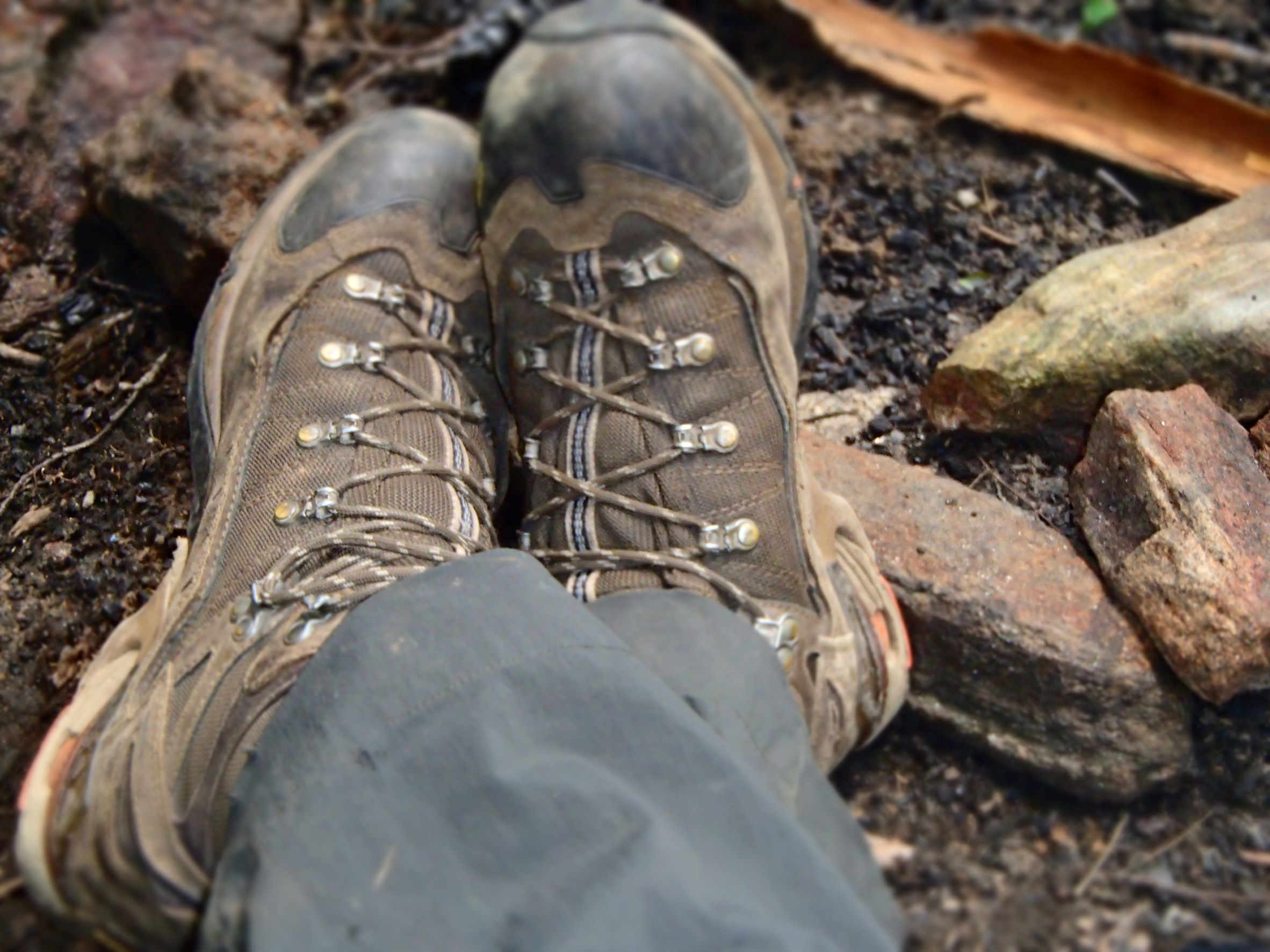
Do not bring:
- mountaineering boots
- tall boots that constrict the calf
- Timberlands, Doc Martens, or Blundstones
FITTING YOUR BOOTS It is essential that your boots fit properly and are comfortable. You are unlikely to judge this walking around a store. Some retailers will allow you to purchase your boots with the understanding that if you wear them indoors for several hours and they do not feel comfortable, you may return them. Fit your boots with the socks you will wear on course.
- Test 1: With the boots unlaced and your toes touching the front of the boot, the boot should be large enough to place your forefinger between your heel and the boot’s heel.
- Test 2: With the boot laced, your heel must be firmly lodged in the heel cup with very little lift when you walk.
- Test 3: The boot should fit snugly around the ball of your foot so that when you twist your foot, it does not move or slip inside the boot.
- Test 4: When on a steep incline or tapping the front of your boot against the floor, your toes should not hit the end of the boot.
BREAKING IN YOUR BOOTS Begin wearing your boots long before your course starts. Wear them around town and at home as much as possible every day for several weeks. You should put 10+ miles on your boots to break them in, walking on both level and rough terrain. If you start feeling any hot spots, treat them immediately using moleskin to protect against the hiker’s worst enemy: the blister! Be kind to your feet.
WATERPROOFING YOUR BOOTS After you are confident your boots fit properly, make sure they are waterproofed. Some boots are already waterproofed when purchased; but if not, follow the sales associate or manufacturer’s recommendations concerning the type of waterproofing to apply.
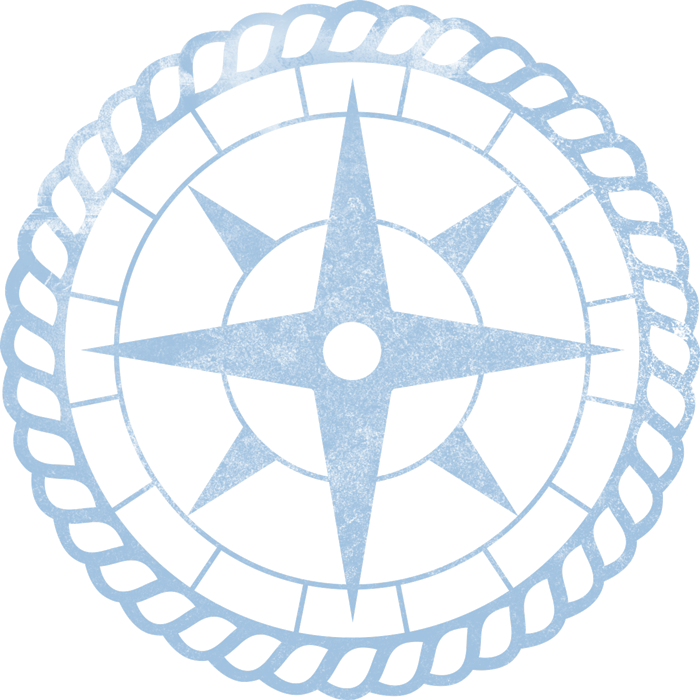
Sign Up for Updates
Stay informed on North Carolina news and updates! Please fill out the form below to begin receiving our email newsletter.

